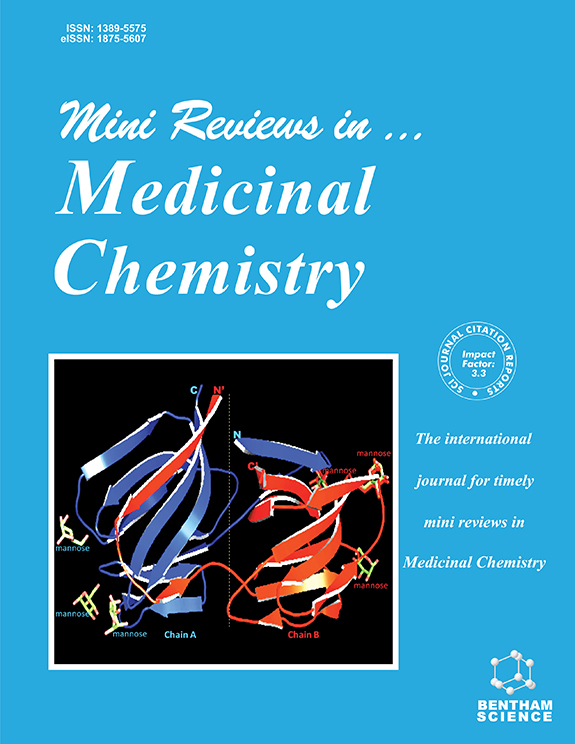
Mini-Reviews in Medicinal Chemistry
Mini-Reviews in Medicinal Chemistry covers all areas of medicinal chemistry, including quantitative structure-function relationships, synthetic chemistry, bioorganic chemistry, drug absorption, drug distribution, drug metabolism, new and emerging drug targets, pharmacogenomics, drug safety profile and drug-induced liver injury (DILI), drug discovery toxicology, high-throughput screening, combinatorial chemistry, structural characterization and organic syntheses of naturally occurring compounds, "nanosystem and nanocarriers", as well as chemical and analytical techniques used in rational drug design.
Mini-Reviews in Medicinal Chemistry is an essential journal for every medicinal and pharmaceutical chemist who wishes to remain informed and up-to-date with the latest and most important developments.
Editor-in-Chief:
-
Davide Barreca Department of Chemical, Biological
Pharmaceutical and Environmental Sciences
University of Messina
Messina
Italy
ISSN: 1389-5575 (Print)
eISSN: 1875-5607 (Online)



